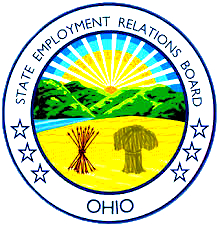Boardman leaders seek funding reforms
Townships rely too heavily on property taxes, trustees tell legislators
BOARDMAN — Township trustees have weighed in on the ever-more-pressing issue of property taxes.
A letter addressed to township residents and Ohio legislators, signed by Larry Moliterno, Tom Costello and Steve Yacovone, was sent Tuesday and called for a change to the way townships are funded.
“While property taxes have long served as a primary funding mechanism for townships across Ohio, we believe it is time to re-examine this model and seek more balanced, sustainable solutions,” the letter stated.
The trustees acknowledged that the cost of living and increases in home valuations and, subsequently, property taxes, place unfair burdens on residents, especially the elderly and those on fixed incomes.
The board lamented that township governments can do little, if anything, to alleviate the burden on themselves and residents.
“Simply put, we have no alternative. Townships in Ohio are not afforded the same revenue options available to other levels of government. We do not have the authority to levy income taxes or benefit from a share of state sales tax revenue,” they wrote. “As a result, we are forced to return to the ballot time and time again, asking property owners to bear an ever-growing financial burden. This is not sustainable, and it is not fair.”
The letter urges legislators and policy makers — and for citizens to encourage them — to seek new methods of supporting local governments, “(w)hether through a broader distribution of state sales tax, limited income tax authority, or other creative funding mechanisms.”
Yacovone said he understands the problem as both a trustee and a resident.
“We know it’s an issue. Everything’s more expensive. I know I’ve got two kids in daycare, I get it.,” he said. “But it can’t just be that property taxes are gone, because then we have no funding.
That’s why we wrote the letter. We want to open that dialogue and start thinking about that and talk about possible solutions.”
The Ohio Township Association states that Ohio’s 1,308 townships receive about 6% of property tax revenues collected. At least 60% of property taxes go to school districts.
Mahoning County Township Association President and Austintown Township Trustee Robert Santos said that despite that small percentage of revenue, property tax income makes up about 88% of his township’s budget and that percentage is similar for Boardman and other townships.
“I know in Austintown, for every $100,000 home, you pay about $1,800 in property taxes, and the township only gets $480,” he said. “Our annual budget is about $17 million to $18 million.” He said Boardman’s is about $5 million more.
Boardman Fiscal Officer Brad Calhoun said Boardman receives $16 million in property tax revenue, which represents two-thirds of the township’s operating budget. The remainder of Boardman’s $24 million budget relies on gas tax funds, motor vehicle licensing funds, the state’s local government fund — which has been dramatically cut in recent years — and permits and fees from zoning and other services.
“In order for the township to make up any losses, we need to then use our carryover,” he said. “Once that runs out, without new money, we have to make cuts.”
Santos said he too understands the frustration residents have but warned against the prospect of eliminating property taxes.
A petition being circulated by a group called Citizens for Property Tax Reform needs about 415,000 signatures statewide to make it onto the ballot in 2026. It proposes to abolish all taxes on real property in Ohio, making it a constitutional amendment.
Local officials, including Mahoning County Commissioners, have repeatedly stated that the move to abolish property taxes, if successful, would be catastrophic.
“Removing property taxes is not going to solve the problem for all of Ohio’s 1,308 townships,” Santos said. “But there needs to be a reevaluation of the funding formula that is not going to cause a burden on residents but allows the trustees to provide the services our residents deserve.”
Calhoun said the township can do no more, so whether property taxes are abolished or not, the burden for fixing the formula lies on officials in Columbus.
“The state needs a way to figure out how to support that two thirds loss and then give us a mechanism to deal with increasing costs due to inflation, equipment, and personnel,” he said.
Commissioners stated that Mahoning County would lose about $52 million in operating revenue if property taxes are abolished, but would still be statutorily responsible for providing services like mental health and recovery, veterans services, and children’s services, among others.
Gov. Mike DeWine has announced all members of his Property Tax Reform Working Group that will analyze and propose by Sept. 30 means of relief for Ohioans overburdened by property taxes.


